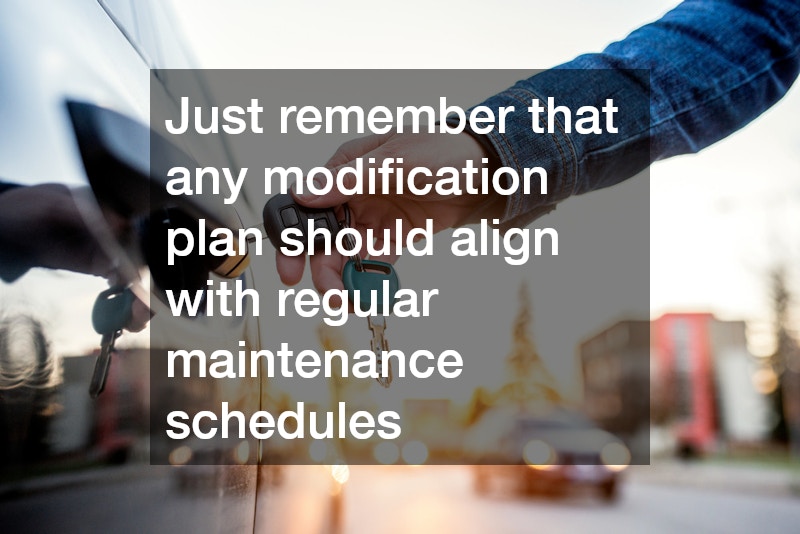Congratulations on taking the initiative to learn more about caring for your vehicle. Owning a car or truck can be a rewarding experience, offering you freedom, convenience, and the opportunity to embark on road trips at a moment’s notice. However, to keep your vehicle running safely and efficiently, it’s important to understand the foundational maintenance tasks that every owner should perform. This guide explores the most common upkeep requirements, breaks them down into manageable steps, and provides insight into how professionals can help. Whether you’re new to car ownership or simply looking to refresh your knowledge, this blog will help you stay on top of essential maintenance tasks and address emerging issues before they turn into major (and costly) problems.
Introduction to Regular Maintenance
A well-maintained vehicle operates more smoothly and can save you money in the long run. When a car or truck is neglected—whether it’s the tires, the fluids, or the internal systems—it’s only a matter of time before things start to fail. Routine care is critical not just for performance but also for safety. Simple checks and timely services can help you avoid accidents, prevent sudden breakdowns, and give you peace of mind while on the road. Even though certain tasks might seem mundane, they form the backbone of responsible vehicle ownership.
It’s useful to keep track of maintenance intervals in a dedicated log, whether that’s a simple notebook in your glove compartment or a digital app on your phone. Many vehicle manufacturers provide recommended service timelines, which include major milestones like changing fluids, replacing belts, or inspecting systems. If you own multiple vehicles or trucks that see heavy usage, staying organized becomes even more essential. Ultimately, regular upkeep strengthens your relationship with your vehicle—making it more dependable, comfortable, and enjoyable to drive.
Engine Care Basics
Looking after your car’s engine is one of the most important steps in keeping everything running reliably. A key element is scheduling a periodic oil change, where old, dirty engine oil is replaced with fresh lubricant. Engine oil degrades over time, losing its ability to reduce friction and protect critical internal parts. Depending on your driving habits and the type of oil you use, changes might be needed every 3,000 to 7,500 miles. Many modern vehicles now have monitors that alert you when you’re due for fresh oil, but it’s still wise to keep an eye on your mileage and check your owner’s manual.
Alongside oil, you should also consider the integrity of your car’s other essential fluids. Coolant, for instance, helps regulate the engine temperature so it doesn’t overheat. Transmission fluid keeps gears shifting smoothly, and power steering fluid ensures effortless handling. Each fluid has specific intervals for inspection and replacement, so get into the habit of having them checked whenever you bring your vehicle in for service. Catching a low fluid level early can prevent serious damage and costly repairs later.
Tires and Wheels
Tires connect your vehicle to the road, playing a huge role in safety, fuel efficiency, and overall performance. Checking your tire pressure should be a monthly ritual. Underinflated tires can lead to uneven tread wear, making it harder to control the vehicle, especially in wet or slippery conditions. On the other hand, overinflated tires diminish traction and increase the likelihood of a blowout. Most vehicles have a recommended tire pressure listed either on the driver’s door jamb or in the owner’s manual.
Rotating your tires every 5,000 to 8,000 miles is another important practice. This helps even out tread wear, prolonging the life of each tire. You should also align and balance the wheels periodically, particularly if you notice your steering wheel pulling to one side or vibrating at certain speeds. Not only can this save you money by extending tire life, it also ensures a smoother, safer ride. Pay attention to any unusual vibrations or noises; they might be an early warning sign that your suspension or steering components need attention.
Brakes and Stopping Power
Your braking system is undoubtedly one of the most critical safety components of your car. Over time, brake pads wear down, rotors can become warped, and brake fluid may become contaminated with moisture. These issues compromise your ability to stop quickly and effectively. Hearing any squealing, grinding, or other unusual noises when you press the pedal is a clear indicator that you may need auto brake repair soon. Soft or spongy pedal feel also signals that brake fluid might be running low or that air has entered the lines.
Preventive checks can mitigate bigger problems down the line. While some brake components are relatively straightforward to inspect on your own, many owners find it easier to rely on professional mechanics for periodic evaluations. Whether you drive a compact sedan or multiple trucks, consistent brake maintenance ensures you can rely on your vehicle to stop under even the most demanding conditions. Timely replacements and fluid flushes also help avoid more extensive and expensive brake system overhauls.
Keeping Things Legal and Safe
No matter how meticulously you maintain your vehicle, compliance with local regulations remains a key part of ownership. You’ll need a current license plate, valid driver’s license, and up-to-date insurance coverage. Many states require an auto inspection service to verify that your car meets emission and safety standards. This process often includes checking brakes, lights, tires, and exhaust systems, ensuring everything is in proper working condition before the vehicle is given the green light for another year (or two, depending on local laws).
Other administrative tasks, such as auto tag renewals and title registration, are equally important. Staying up to date with paperwork helps you avoid penalties and ensures your car remains street-legal. It’s easy to forget about renewal dates or inspection appointments, so keep reminders in your calendar or set up automatic notifications. Should any question arise about local statutes or deadlines, a quick call to your DMV or a visit to their website can clarify what you need. The more proactive you are with administrative chores, the smoother your ownership experience will be.
Body and Exterior
When you think of vehicle maintenance, mechanical systems probably come to mind first. However, the exterior of your car also requires some attention. Dirt, salt, and other contaminants can damage your paint job if left unchecked, leading to rust or corrosion over time. This is especially true if you live in areas with harsh winters or near the coast, where salt is more prevalent. Regularly washing and waxing your vehicle is an easy way to preserve its appearance and safeguard against deterioration.
Minor scratches, dents, or collision damage can and should be addressed promptly. Even a small dent can expose the underlying metal, leading to bigger issues down the road. Professional auto body shops can handle everything from cosmetic touch-ups to full-scale restorations. Not only do these repairs keep your car looking its best, they also protect structural integrity. For instance, if a collision disturbs the alignment of your body panels, wind and rain could infiltrate the cabin. Prompt exterior care also pays dividends at resale time, as a well-maintained body and paint job often fetch a higher trade-in or private sale value.
Fluid Checks Beyond Engine Oil
While engine oil might be the most frequently changed fluid, several other fluids deserve regular checks as well. Brake fluid, already mentioned, is vital for responsive braking. Power steering fluid keeps your steering smooth and consistent. Coolant (also known as antifreeze) prevents the engine from overheating in the summer and freezing in the winter, and it must remain at an adequate level and proper concentration. There’s also windshield washer fluid to consider—running out of it at the wrong time can severely hamper your visibility.
One critical fluid that doesn’t receive enough attention is transmission fluid. Often, your car will shift gears smoothly until one day it starts hesitating or making odd noises. By that point, you might be on the brink of needing auto transmission repair—one of the most expensive fixes a vehicle can require. Regular transmission fluid checks and changes are particularly important for vehicles that tow loads or operate under high stress, like certain trucks or off-road SUVs. Keeping your transmission fluid clean and at the right level will help your car shift seamlessly and prolong the system’s life.
Insurance and Financial Protection
Part of responsible car ownership involves shielding yourself from financial risks on the road. Accidents, theft, or natural disasters can result in major expenses that few people can comfortably cover out of pocket. That’s where auto insurance companies come in. They offer coverage for various risks, such as collision damage, liability if you harm another person or their property, and comprehensive protection for non-accident-related incidents like vandalism or weather damage.
While minimum coverage is often mandated by law, you can explore additional features like roadside assistance or rental car reimbursement. The best policy choice depends on your budget, driving habits, and the vehicle you drive. Owners of newer, high-value cars might want more comprehensive coverage, whereas an older, rarely driven car could warrant a simpler plan. Shopping around and comparing quotes is generally recommended, as rates can vary significantly between providers. Whichever policy you choose, keep your insurance documentation in your car, and make sure it’s up to date to avoid issues if you’re ever pulled over or involved in an accident.
Diesel vs. Gas Engines
If you drive a diesel-powered vehicle, you’ll have some unique maintenance considerations compared to those with gasoline engines. While diesel engines can be more fuel-efficient, they often operate under higher compression and can generate more torque. Proper care for diesel vehicles includes timely diesel repairs when needed, as well as monitoring unique components like glow plugs, which assist in cold starting. You also need to be vigilant about the fuel filter, given that diesel can contain more contaminants that clog filters.
Many diesel owners need to pay close attention to the emissions system, especially with modern technologies like diesel particulate filters (DPFs). These systems help reduce pollution but can become blocked if you frequently drive short distances. Periodically taking longer highway trips allows the DPF to regenerate, burning off soot and other particulates. Whether you own a diesel sedan for commuting or large trucks for hauling heavy loads, learning these nuances can help your engine last for hundreds of thousands of miles, making diesel ownership particularly appealing.
Handling Major Repairs and Choosing a Mechanic
At some point in your vehicle’s life, you might face a major repair—anything from engine overhauls to complete auto transmission repair. Deciding where to take your car is crucial, as the quality of workmanship can significantly affect your vehicle’s reliability and value. While dealership service centers offer factory-trained technicians and genuine parts, independent mechanics can provide excellent work at competitive prices. The right choice often depends on your budget, your trust in the service provider, and how specialized your repair needs are.
Look for mechanics with solid reputations and transparent pricing. Word-of-mouth referrals are invaluable—ask friends, family, or coworkers for their experiences. Don’t be afraid to request written estimates, which detail the cost of parts and labor. This clarity helps you avoid surprises and allows you to compare prices if you’re seeking multiple opinions. Whether it’s auto brake repair or diagnosing engine troubles, a reliable mechanic is worth their weight in gold. Over time, building a relationship with a trustworthy service center can make routine maintenance simpler and emergency fixes less stressful.
Maintaining Documentation and Legal Requirements
Part of being a conscientious car owner is keeping track of your vehicle’s entire lifecycle, not just its mechanical health. Every time you complete a service—be it an oil change or a tire rotation—make a note of it. Having a documented history can simplify the process of buying or selling vehicles in the future, and it can provide clarity when diagnosing repeated issues. Documentation also extends to the administrative side of ownership. Ensuring that your title registration details are accurate and up to date helps avoid any bureaucratic hiccups down the road.
Renewing tags and completing required auto tag renewals might feel like a repetitive chore, but it’s mandatory to keep your vehicle street-legal. Some states allow online renewals, while others require an in-person visit. Keep your proof of insurance, driver’s license, and any relevant vehicle documents organized and easily accessible. If you relocate to a different state, you’ll need to meet that state’s registration rules and possible auto inspection service requirements. Although it’s easy to overlook paperwork in favor of the more exciting aspects of car ownership, consistent attention to these details helps you avoid tickets, fines, and administrative headaches.
Seasonal Adjustments
Cars and trucks behave differently as the seasons change. Cold winters can thicken engine oil, reduce battery efficiency, and create slick road conditions that demand top-notch brakes and tires. You might also find corrosion forming on metal parts due to road salt. In the warmer months, the cooling system faces extra stress, and your air conditioning components work overtime to keep the cabin comfortable. Keeping an eye on seasonal adjustments helps you anticipate these challenges.
Consider swapping to winter tires if you live in an area with heavy snowfall—they have deeper tread patterns for better grip. Make sure to switch back to all-season or summer tires once temperatures rise, as winter tires wear out quickly on hot pavement. Also, monitor your battery more closely in extreme heat or cold. If it’s more than three years old, consider having it tested to ensure it’s holding a proper charge. A well-maintained battery can mean the difference between your car starting reliably each morning and being stuck in the driveway.
Extending Vehicle Longevity
Whether your dream is to rack up 200,000 miles on your beloved car or to keep your brand-new SUV in pristine condition for years, extending vehicle longevity usually boils down to consistent care and mindful driving. Avoid rapid accelerations and harsh braking whenever possible; these habits can wear out components faster and reduce fuel economy. Warm the engine briefly on cold days before driving off, giving the oil time to flow through crucial parts.
Keep your vehicle’s interior clean, wiping away dust and vacuuming carpets. Dirt and debris can accumulate in the nooks and crannies of your cabin, potentially clogging air vents or filters over time. If you drive in especially dusty areas, change your cabin air filter more often. A clean cabin and engine compartment both contribute to a healthier driving environment. Finally, pay close attention to changes in how your car handles, sounds, or smells. Unfamiliar noises, decreased fuel economy, or unusual vibrations can be early indicators of a bigger issue—listening to your car’s signals can save you a lot of hassle.
Planning for Future Upgrades and Modifications
After you’ve mastered routine maintenance, you might start thinking about modifications that improve performance, aesthetics, or convenience. Maybe you want custom rims, a new exhaust system for better engine efficiency, or an upgraded sound system. Whatever the goal, approach modifications with a plan. Research not only the cost but also how each change might affect warranty coverage, insurance rates, and your vehicle’s handling. If you’re planning to sell your vehicle, note that certain mods can reduce its broader appeal to potential buyers, while others, like tinted windows or upgraded infotainment systems, might add value.
Performance enhancements should be carried out by professionals who understand your vehicle’s specific make and model. Improper installations can lead to bigger headaches down the line, from voided warranties to mechanical failures. Talk with experts or consult online communities dedicated to your car type. You might find that some modifications are more trouble than they’re worth, or you might discover an upgrade that noticeably enhances your driving experience. Just remember that any modification plan should align with regular maintenance schedules—no performance enhancement will do much good if your basic systems aren’t in excellent condition.



